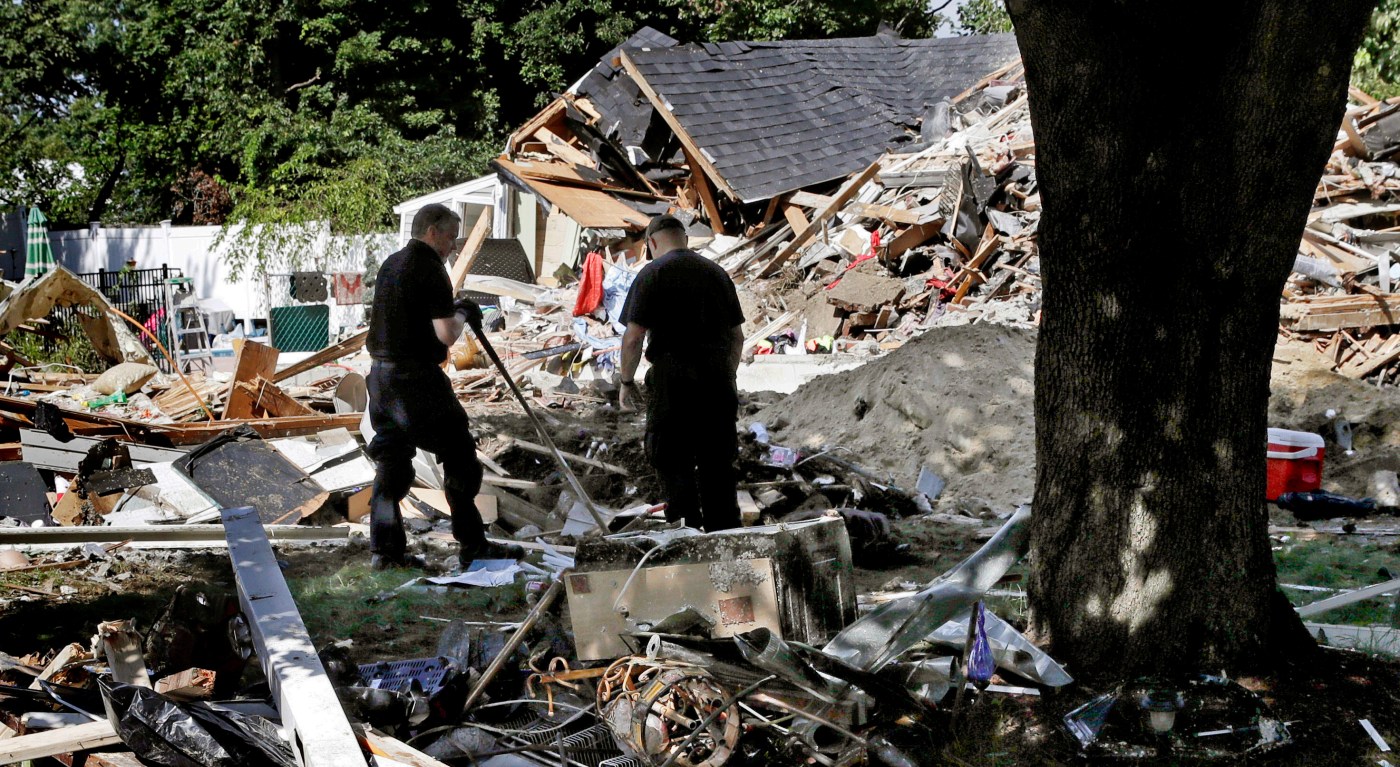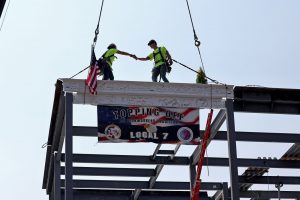
Hundreds of pipes are leaking explosive methane in Boston, group says
There are hundreds of leaking National Grid gas lines — 15 of which “pose an imminent explosion and fire hazard” — throughout some of Greater Boston’s most vulnerable neighborhoods and the company is not meeting its legal obligation to solve the problem, according to the Conservation Law Foundation.
In a letter outlining their intent to sue the gas supply company to force them to address the hundreds of “Grade 1″ natural gas leaks in and around the city, CLF says the National Grid isn’t doing enough to address “an imminent and substantial endangerment to health and the environment.”
“According to National Grid’s leak data, there are 609 active leaks in the affected communities and 7,118 active leaks in National Grid’s Massachusetts service area. Each instance of National Grid’s improper response to a gas leak or a gas leak that poses a risk to health or the environment that does not comply with the (Resource Conservation and Recovery Act), the (Pipeline Safety Act), or Massachusetts law is a violation,” they wrote.
“There are more than 1,400 instances of National Grid failing to repair gas leaks in a timely manner and of gas leaks causing damage to health and the environment,” the CLF wrote.
According to the letter, more than 40% of the company’s distribution pipes are made of “cast iron, wrought iron, steel, copper, and certain plastics that corrode” leak natural gas, and the company hasn’t fulfilled its duty to fix the problem permanently.
“Plaintiffs’ investigators found 15 explosive-level leaks in just seven days in the affected communities. In 2022, National Grid was the only gas company in the Commonwealth that failed to repair all hazardous leaks by the end of the year even though National Grid must repair hazardous leaks immediately,” they wrote.
A “Grade 1” leak is defined under state law as “a leak that represents an existing or probable hazard to persons or property” which requires “immediate commencement of repair and continuous action until the
conditions are no longer hazardous, the source of the leak is eliminated, and permanent repairs have been completed.”
The pipes are leaking methane gas, the CLF says, which when concentrated in enclosed spaces can become explosive. The “explosive range” is between 5% and 15% methane in the air, according to CLF.
A street survey found “alarming levels of methane” were found in parts of Chelsea, Chinatown, Dorchester, East Boston, Jamaica Plain, Mattapan, Roslindale, Roxbury, South End, and the Commonwealth Avenue Mall in Back Bay.
Natural gas leaks can and have led to dangerous — even deadly — outcomes, according to CLF.
“In December 2017, a National Grid gas leak ignited and fueled flames as high as a two-story home for more than 24 hours in Roslindale. In 2018, several gas-fueled explosions damaged 131 structures (including five homes), killed a teenager, and injured individuals in Merrimack Valley. In December 2019, gas leaks caused 12 manhole covers to explode in Brookline where residents had been smelling gas for years. Also in 2019, a gas-fueled basement fire was reported in Mattapan. In June 2022, gas leaks caused two manhole covers (each weighing 200 pounds) to explode in the Financial District of Boston, shattering windows and injuring one,” they wrote.
Leonel Rondon, 18, of Lawrence, died after the chimney of an exploding house crashed onto his car and crushed him. Rondon had received his driver’s license just hours earlier. Rondon’s family later reached a settlement with the utility involved in the disaster.
The explosions were caused by over-pressurized pipelines operated by Columbia Gas of Massachusetts, according to a federal investigation. The utility agreed to pay the state $56 million in 2020 in addition to a $53 million federal fine and a $143 million lawsuit settlement.
Even when methane gas isn’t concentrated enough to explode, the leaks still have a direct impact on the health of people in greater Boston, according to the CLF. The Law Foundations pointed to research showing that methane replaces the oxygen in soil and kills shade trees. Fewer trees means less shade, and Boston, like all cities, is already subject to a phenomenon called the “heat island effect.”
“The heat island effect refers to urban areas that are much hotter than outlying areas (sometimes by as much as 60°F) because urban areas lack trees and green space and contain more heat-retaining buildings and pavement,” CLF wrote.
“Gas leaks are killing vital public shade trees. The methane in gas removes oxygen and moisture in the soil, which trees need to survive. As a result, National Grid’s tree-killing gas leaks will increase disastrous health effects from extreme heat and heat islands,” they wrote.
The letter says National Grid has 90 days to fix the problem or face a lawsuit.
According to CLF Vice President of Clean Air and Water Heather Govern, her organization wants National Grid “to stop violating federal and state laws by putting band-aids on dangerous, leaking pipelines,” but more than that, they want “the company to step up and transition their customers off of natural gas so communities can benefit from renewable energy options and live without risks of pipeline explosions amid a tree-filled healthier environment.”
A spokesperson for National Grid told the Herald that “as I’m sure you’ll understand, as this is pending litigation, we aren’t commenting.”

